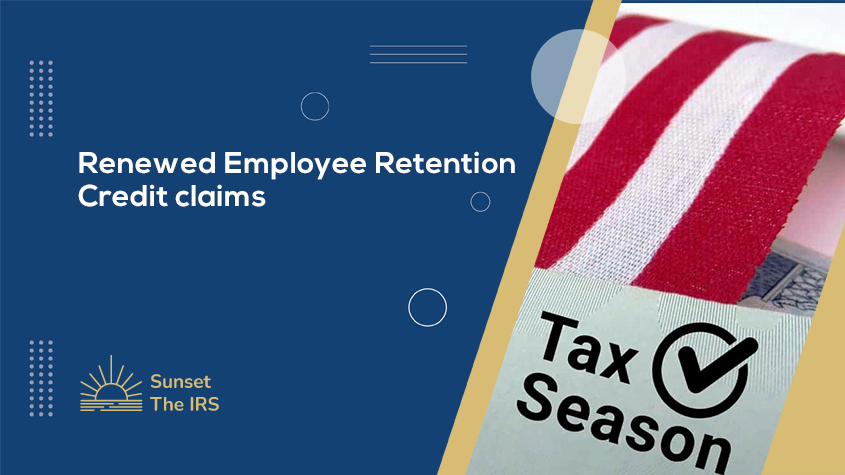
As the 2023 tax filing season gets underway, the Internal Revenue Service (IRS) has issued a renewed warning to individuals and businesses who may be considering making false claims for the Employee Retention Credit (ERC).
The ERC is a tax credit available to eligible employers who retained employees during the COVID-19 pandemic. However, the IRS has identified instances of individuals and businesses making false claims for the credit, either by claiming the credit for ineligible employees or by claiming the credit for periods of time when the business was not eligible.
The IRS warns that making false claims for the ERC can result in significant penalties and interest, as well as criminal prosecution in some cases. In addition, individuals and businesses who claim the credit improperly may be subject to an audit or other compliance review by the IRS.
To avoid the risk of penalties and interest, the IRS advises individuals and businesses to carefully review the eligibility requirements for the ERC before making a claim. Employers must have experienced a significant decline in gross receipts or been subject to a government shutdown order to be eligible for the credit.
In addition, employers should ensure that they are claiming the credit only for eligible employees, such as those who were not furloughed or laid off during the pandemic. The amount of the credit is based on the employee's wages and the length of time that the employee was retained, so accurate record-keeping is important.
By following these guidelines and avoiding false claims for the ERC, individuals and businesses can minimize their risk of penalties and interest, and ensure that they are in compliance with IRS regulations.
Here are some frequently asked questions about the IRS's warning on Employee Retention Credit claims:
Q: What is the Employee Retention Credit?
A: The Employee Retention Credit is a tax credit available to eligible employers who retained employees during the COVID-19 pandemic.
Q: What are some examples of false claims for the Employee Retention Credit?
A: False claims for the Employee Retention Credit may include claiming the credit for ineligible employees or claiming the credit for periods of time when the business was not eligible.
Q: What are the penalties for making false claims for the Employee Retention Credit?
A: Making false claims for the Employee Retention Credit can result in significant penalties and interest, as well as criminal prosecution in some cases.
Q: How can individuals and businesses avoid making false claims for the Employee Retention Credit?
A: Individuals and businesses can avoid making false claims for the Employee Retention Credit by carefully reviewing the eligibility requirements before making a claim and ensuring that they are claiming the credit only for eligible employees.
Q: What should employers do if they are unsure whether they are eligible for the Employee Retention Credit?
A: Employers who are unsure whether they are eligible for the Employee Retention Credit should consult with a tax professional or contact the IRS for guidance.


